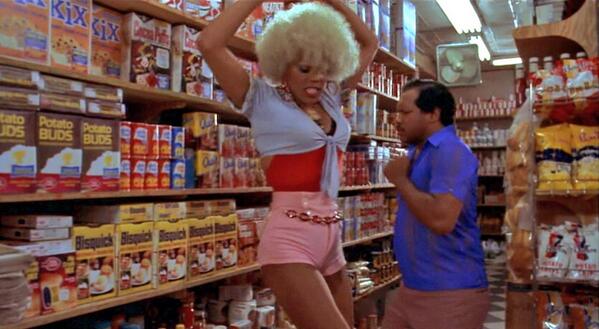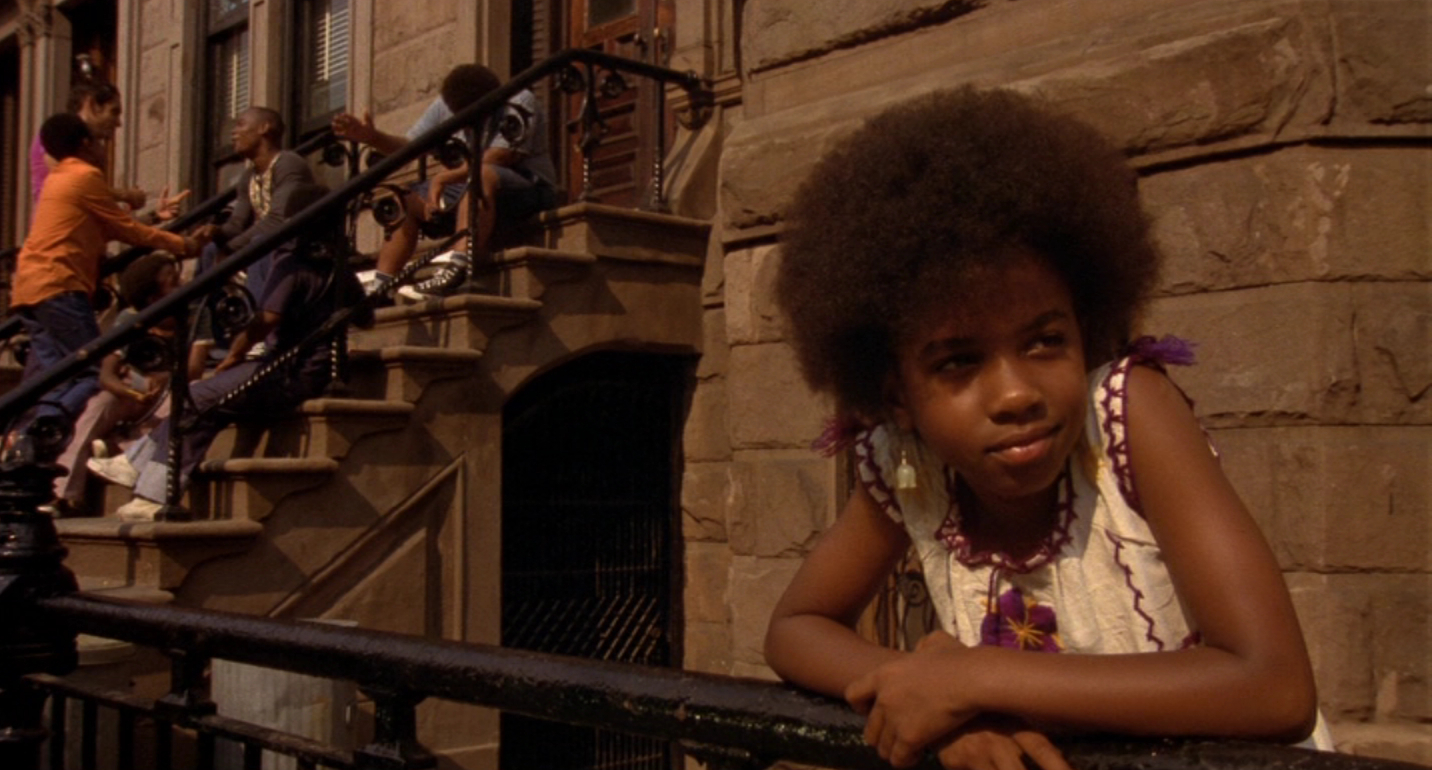Spike Lee's Overlooked and Exuberant "Crooklyn"
 Thursday, November 12, 2015 at 4:15PM
Thursday, November 12, 2015 at 4:15PM TFE is celebrating the three Honorary Oscar winners this week. Here's Kieran discussing one of Spike Lee's warmest and most underappreciated films.
 For better or worse, you can often feel a larger thesis statement, be it about race and/or American culture at large, running through much of Spike Lee’s work. His films also feel incredibly male in their perspective. Even his few films that foreground women (She’s Gotta Have It and Girl 6) feel enveloped by the male gaze, despite their many other virtues. These are just a couple of reasons why Lee’s semi-autobiographical slice-of-life dramedy Crooklyn feels like a bit of a curio.
For better or worse, you can often feel a larger thesis statement, be it about race and/or American culture at large, running through much of Spike Lee’s work. His films also feel incredibly male in their perspective. Even his few films that foreground women (She’s Gotta Have It and Girl 6) feel enveloped by the male gaze, despite their many other virtues. These are just a couple of reasons why Lee’s semi-autobiographical slice-of-life dramedy Crooklyn feels like a bit of a curio.
Crooklyn is set in the summer of 1973 in the Bedford-Stuyvesant neighborhood of Brooklyn, where Lee himself grew up. Nine-year-old Troy Carmichael (Zelda Harris) is the only girl in a brood that includes four rowdy brothers. Though often put-upon and teased, Troy is tough, clever, funny and every bit the daughter of her equally strong-willed mother, Carolyn (a radiant Alfre Woodard). More so than any other film Lee has directed, Crooklyn is wholly interested in the inner-life, motivations and perspective of its female characters. Even Woody (Delroy Lindo), the family patriarch and easily the most fleshed out male character in the joint still feels like an afterthought compared to how focused the narrative is on Troy and Carolyn. How Alfre Woodard's anchoring performance failed to garner any Oscar traction is confounding, especially when one looks at the outlet mall fire sale irregulars that were the Best Actress nominees of 1994.
The “angry black man” label that Lee has garnered, fairly or unfairly, burdens the reception to a lot of his work. And yet, it seems when he leans away from that, critics and audiences alike are still at sea as to how to respond. Not to say that Crooklyn is categorically absent of any critiques or observations of blackness and anti-blackness in America. The Carmichaels have a neighbor, Tony Eyes (David Patrick Kelly) who emblematizes this. His frustration at the Carmichael boys dumping their trash in his rubbish cans seems couched in seething resentment of the fact that he has to live so close to so many black people; a dynamic not exactly subtle in how it’s rendered. And yet, there’s an uncommon warmth, humanity and light touch running through Crooklyn. This feels tonally refreshing when held up against Lee’s other work, particularly coming off the heels of Malcolm X, released two years earlier.
When Troy goes to visit relatives over the summer, Lee employs an oft-discussed (when this film happens to be discussed) technique of altering the framing. The picture looks squeezed together, meant to represent how Troy, a born-and-raised New Yorker experiences the expansive suburbs of the American South. It’s incredibly distracting, but also endearing as it’s an example of how the movie isn’t afraid to be fully in this girl’s experience. One can’t help but admire how he film has the courage of its mercurial convictions.

Many of Spike Lee’s films have a sort of purposeful looseness to their structure. This style is used to great effect in Crooklyn. There’s so much odd, colorful specificity running through the piece. A scene in which Troy buys candy at a local bodega and watches Connie (RuPaul in a brief, but memorable cameo) dance seductively and frenetically with a Puerto Rican customer to Joe Cuba’s “El Pito” stands out. It’s such a strange and funny moment that has no bearing on the rest of the film and can only have been birthed from something Lee witnessed as a child. There are a lot of frisky and playful moments like this in Crooklyn, though neither of those are adjectives that one typically conjures when considering Spike Lee and his work.

Though it has gained a bit of a cult following, Crooklyn was not a success in its time. It tanked at the box office and is not routinely ranked among Lee’s best work, though it surely deserves to be. It’s right up there with Do the Right Thing in terms of a singular and personal work by one of his generation’s most important filmmakers.




Reader Comments (17)
It should be mentioned that Joie Lee, Spike's sister and a frequent acting ensemble member across his filmography, is a credited co-writer on Crooklyn. I don't think her voice can be discounted when you think about what makes Crooklyn a different kind of Spike Lee film.
Yes. Crooklyn is an underrated gem. Alfre Woodard and Delroy Lindo are superb. But that outlet quote on that years best actress nominees is golden.
The ending of this films makes me tear up badly. I had a similiar experience as a kid with my mother Whether your Black or White, I can't imagine not being able to relate to this film.
Such a great film. I wish more people would see it. Alfre's even better in this than in her Oscar-nominated role.
It's fun to watch A Tree Grows in Brooklyn and Crooklyn within a fairly short span of time (two months for me). Having very little background knowledge of the two films, I thought Crooklyn might have been a loose readaptation of Tree and was kind of surprised to find that out any similarities really were coincidental. They do mirror each other in many ways though. Both extremely fine films.
Morgan -- i loved the jab at 1994 too. P.S. i have never seen this even though I like Spike Lee and love Alfre Woodard. Must rectify
LIz--that's a good point. It definitely explains a lot and should have been mentioned.
Nathaniel--I'd be curious to hear your thoughts on it once you see it, particularly Woodard's performance. Part of me wonders that if today, in the age of DVD screeners, Woodard would have been able to get some traction. There are just so many hooks to the performance (that I won't spoil) plus a lot of good "clip" scenes and she's so fab in it.
They nominated Susan Sarandon for The Client. Ah, the 90s.
"...especially when one looks at the outlet mall fire sale irregulars that were the Best Actress nominees of 1994."
I love that quote almost as much as I love this movie. It's one of my favorites from Spike Lee for all of the reasons mentioned in the article, and I really love Zelda Harris as the lead character.
Crooklyn is a family favorite around my house. Every now and again we'll just pop in the DVD. It's such a wonderful film. I'm not quite sure it's among his best, but I do love it. Woodard was fantastic, but so is little Zelda Harris as Troy. One of my favorite child performances of all-time. A piece I wrote about Troy a while back:
http://dellonmovies.blogspot.com/2014/06/women-in-film-blogathon-troy-carmichael.html
It's been mentioned that Spike's sister Joie is credited as a co-writer. From what I understand, she truly wrote it with him changing a few things here and there, giving them both writing credits along with his brother Cinque.
Great post.
My favorite Spike Lee film.
Liz, thanks for pointing Joie Lee's co-writing duties in the first comment -- it's all about that imho.
Also, silly though RuPaul's moment is, I think it's the first time Lee managed to get a queer character into his films who wasn't a psycho (ala Mliler's Crossing).
"especially when one looks at the outlet mall fire sale irregulars that were the Best Actress nominees of 1994"
D E A D. & a brilliant review all around
I believe Woodard's lack of traction has everything to do with them never nominating black actresses in the lead category unless their work is of the juggernaut persuasion. Hence Angela Bassett being the sole black Best Actress nominee of the decade. And if you really want to know what the Academy thinks of Woodard notice who replaced her for supporting actress in 1992!
While we're still talking about best actress 1994, what do you guys think about TOM AND VIV?
That movie garners Miranda Richardson a second nom, and it's the sole reason we can call Rosemary Harris, or the real Aunt May, an Oscar nominee.
Of course this prompted me to look up Susan and The Client...she friggin' won the BAFTA for Lead Actress!
In dead seasons for the Best Actress category overdue narratives take flight hence Blue Sky (1994) and Still Alice (2014).
Love Crooklyn. The scene where Delroy Lindo has to tell the kids that their mom is really sick is incredibly moving and beautifully acted by all concerned (Spike Lee let the kids be kids, thus they were all believable throughout). And yes: Alfre Woodard was great in it. Then again, she's pretty great in everything.